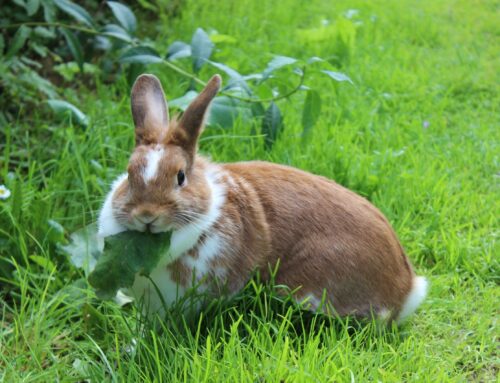The Pet Travel Scheme (PETS) introduced in 2010 by many EU countries permits the movement of pet dogs, cats, and ferrets to and from the UK without the need for quarantine. Many diseases that occur abroad are not seen in the UK, and are often are transmitted by biting insects and ticks. UK pets will not have met these diseases before and are susceptible. PETS allows for travel, but it should not be undertaken without serious thought. You need to consider if your pet is likely to be affected by the stress of long-distance travel, high temperatures in many southern European countries, and the risk of exposure to new diseases. Many exotic diseases do not have licensed veterinary medicines available here, and treatment may be delayed while importing drugs from abroad.
What is the passport ?
Passports issued under PETS contain information that is unique to the animal, as well as information proving they meet criteria needed for entering the UK. Meeting these criteria ensures your pet is protected against certain diseases. 2014 brought new rules and a new style passport aiming to reduce fraud, illegal trade of animals, and enforce checks at all EU borders.
Where can I take my pet?
Your pet can only travel to EU countries and certain listed non-EU countries with their passport. A list of these countries is here on the government website.
Travel requirements for pets going to and from unlisted non-EU countries is more complicated than the standard pet passport, and they will need other documentation, so make sure you check requirements ahead of time. Further information can be found on the government website.
What are the rules to re-enter the UK?
To enter the UK pet dogs, cats and ferrets must:
- be microchipped (the microchip must be implanted before or at the time of vaccination).
- be vaccinated against rabies by an Official Veterinarian. To help prevent the movement of very young puppies across europe, your pet must be 12 weeks old to be vaccinated. Boosters must be kept up to date or the passport will be invalid.
- have waited 21 days after vaccination before entering the UK.
- have an EU Pet Passport issued by an Official Veterinarian. In 2014 the pet passport design changed. Old passports can still be used for the lifetime of the pet it was issued for. New passports have laminated pages to help prevent tampering, and the issuing vet’s details in case anything goes wrong.
- be treated against Echinococcus multilocularis tapeworm (dogs only) 24-120 hours before arrival in the UK, by a vet who can certify the treatment. Details of the treatment must be recorded in the passport. The treatment must have Praziquantel or an equivalent and be approved in the country where it is administered. Travel from Finland, Ireland, Malta or Norway doesn’t require tapeworm treatment.
What pets can I take?
Pet passports only cover domestic dogs, domestic cats and ferrets, not wild animals. Advice must be sought regarding hybrid pets such as Bengals and Savannah cats.
To try and combat the illegal selling of dogs in the UK, there are different rules if you have more than 5 pets. You will need to travel from a registered premises, using a registered courier unless your pet is taking part in a show, competition or event, registered before travel.
When should I see my vet about a passport?
Your pet cannot travel back to the UK until 21 days after vaccination. Ideally you should book in an appointment at least a month before travel so we can:
- discuss the countries you intend to travel to, and specific health risks.
- perform a clinical examination of your pet to ensure it is fit to travel abroad.
- check that the rabies vaccination and pet passport are up to date.
- ensure the microchip is working and reading correctly.
- discuss preventative treatments needed to protect your pet against ticks, sandflies, heartworm and tapeworm whilst abroad.
- prescribe effective medication for your pet and show you how to administer it.
When you book your appointment, tell us what it is for. Vets need special qualifications to become an OV (Official Veterinarian) so they can carry out this work. We need to make sure you are booked in with one of our OV-qualified vets.
What happens if I take my pet away without a passport?
If you don’t have the right paperwork on arrival in the UK, your pet will be quarantined or returned to where they came from. This can be traumatic and costly.
What is the best way to travel?
Travel between countries must only be done using approved travel routes and, if using public transport, approved companies only. Clarify travel arrangements with your train, ship or airline company. They may require written proof from an OV that your pet is fit and healthy, and may have certain restrictions. Contact the Pet Travel Scheme helpline (0370 241 1710) or check the government page.
If you travel separately, your pet must arrive in the UK within five days either side of you, or you have to follow different rules. You can authorise someone else to travel with your pet with a written declaration.
Pet passports can be daunting, so please ask us for support. This pre-travel checklist may help.
- Have an up-to-date original pet passport for your pet.
- Check your pet’s passport contains all the required information. It is sensible to check information is correct and make sure the tapeworm treatment is recorded and signed by the vet.
- Check your travel company accepts pets.
- Have any other documents: ‘fitness to travel’ certificate if needed, or other documentation if travelling from an unlisted country.
- Are you using an approved route?
- Have any medication you need. The tapeworm treatment needed to re-enter the UK can be purchased abroad or you can also take it with you. A qualified vet will still need to give it, and sign the passport. Don’t forget to pack any other preventative medication our vets have recommended, or other long term medication your pet is on.
If you live in or near the Co. Cork area and want to learn more about pet passports or want to apply for one, please contact our practice and we can help.



